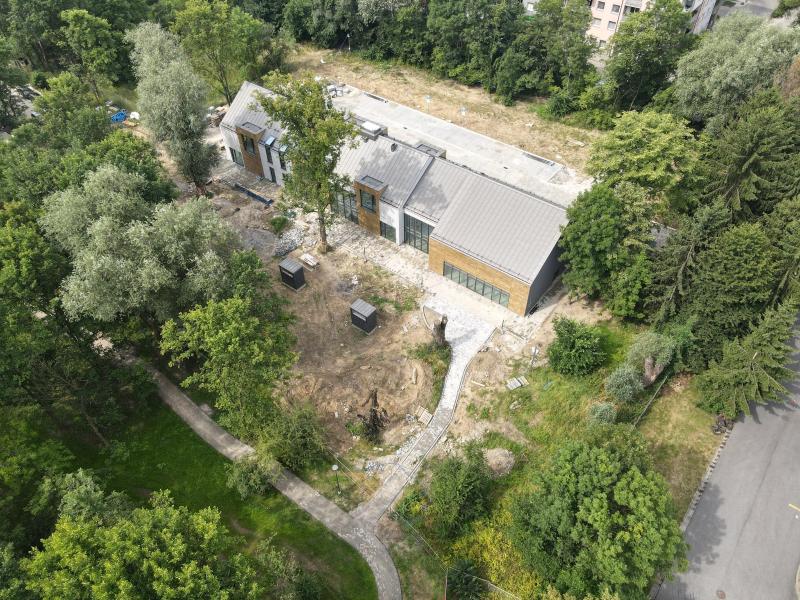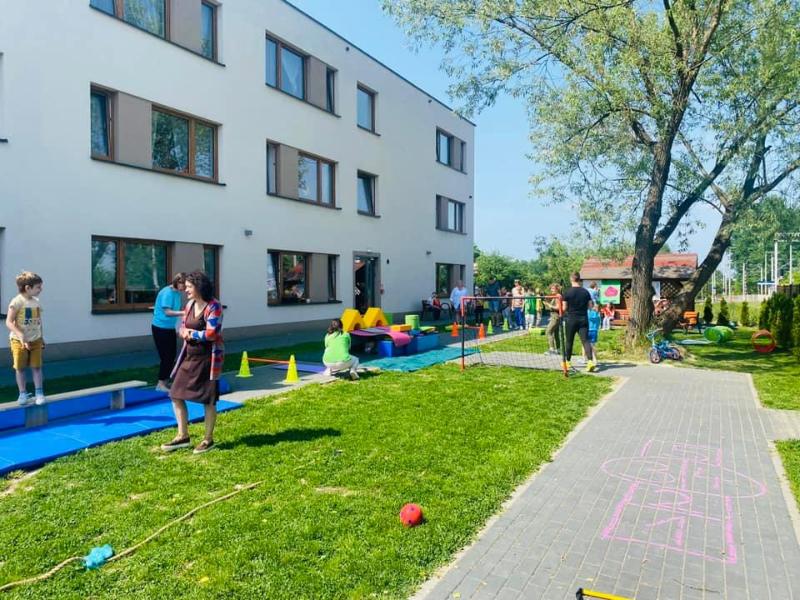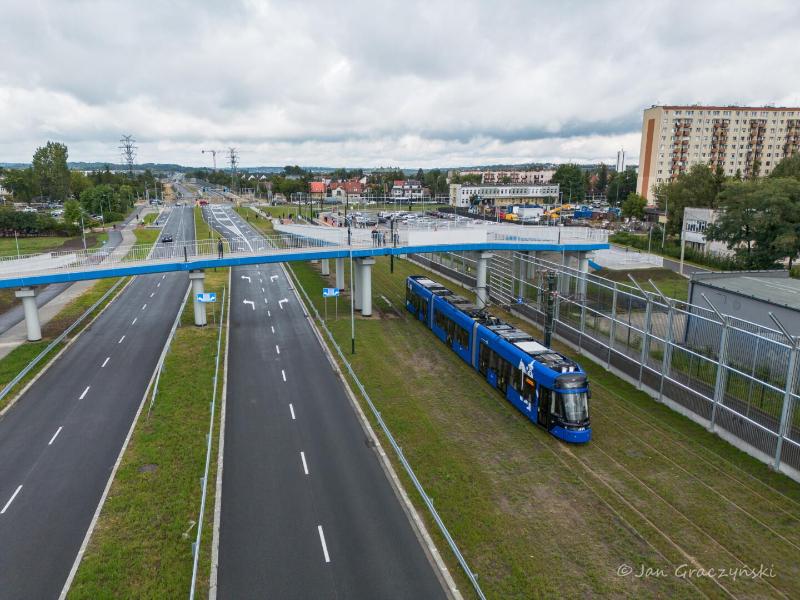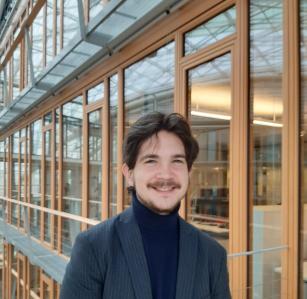Kraków is upgrading urban infrastructure to make a greener city for residents and aid Ukrainian families
Kraków is a city with a history spanning a thousand years. A walk through the medieval centre, with its Baroque churches, Renaissance castle and cobbled roads, is enough to make you believe that the city has resisted the passage of time. But for a long time, air pollution cast a dusty shadow over Kraków’s beauty, damaging the quality of life of its residents.
To change that, Kraków is working on an urban plan to transform into a climate-neutral and smart metropolis.
“We want to be perceived as a city of innovation, a scientific and research and development centre, a leader in sustainable urban development and climate action” says Andrzej Łazęcki, director of Kraków’s department of municipal management and climate.
It’s also a city with unexpected infrastructure pressure, because Russia’s invasion of Ukraine brought approximately 270 000 refugees to Kraków. These arrivals created a bigger demand for public infrastructure and services, such as education, healthcare, and housing.
Despite the war in a country less than 300 km away, Kraków didn’t give up its ambitious climate goals. Instead, it wants to hit two targets at once—make the city greener and upgrade and renovate Kraków’s urban infrastructure to accommodate the needs of its citizens and the Ukrainian arrivals.
“We can learn a lot from Kraków’s approach to dealing with climate change and the current humanitarian crisis,” says Leonor Berriochoa, a senior engineer at the European Investment Bank, who worked on a €130 million (585 million zloty) loan to the city signed in 2023. “It could inspire many other cities to follow.”
Why is green urban development important?
For cities to prosper and grow, urban development is necessary. Modernising public infrastructure improves the quality of life for residents and boosts local economies. Well-planned urban development encourages innovation and fosters social cohesion and environmental sustainability, making cities more vibrant, inclusive, and resilient.
It can also help cities to adapt and deal with a humanitarian crisis.

A new community centre will be built at Koszykarska Street
“Every city can host a limited amount of population,” says Katerina Zisimopoulou, a senior urban specialist at the European Investment Bank. “So, when thousands of people arrive, education, transport, and other existing infrastructure cannot respond to the needs of the growing number of inhabitants, causing conflict, lack of resources and rapid deterioration of public services and infrastructure.”
Urban development projects, which build new public infrastructure and upgrade existing one in an inclusive and integrated way, are important for meeting the needs of citizens like education, healthcare, and employment.
- Read more about five ways to rebuild during a war
Facing a humanitarian crisis
Local authorities adjusted their urban development plan in response to the growing needs of Kraków’s citizens and the Ukrainian who made new lives here over the past years .
“We focused on the integration of the newly arrived Ukrainian population and their inclusion in all public services, which needs to be extended to accommodate the newly arrived people,” says Elżbieta Żurek-Kois, director of the department of social affairs and health at the municipality of Kraków.
One of the city’s projects is the construction of the Educational and Therapeutic Centre, which will help Polish and Ukrainian children with disabilities, in particular autism and limited mobility. The centre will run a primary school and offer support for the children and their families, such as psychological therapy and physiotherapy. It also aims to create a multicultural and multilingual environment by supporting children from Poland, Ukraine, and other countries.

The Educational and Therapeutic Centre at Topografów 11 Street
Kraków’s Urban Development Strategy also includes:
- Building a nursing home on Praska street and expanding and modernising existing one on Kluzeka street
- Building a nursery in Stare Podgórze, a neighbourhood in Kraków
- Creating sport and entertainment facilities adapted to the needs of the disabled on the premises of the high school and primary school on Fredry Street
- Adapting the municipality buildings of the city to the needs of people with disabilities
“The construction of new social, educational, cultural facilities is due to the increased number of inhabitants, including people coming from Ukraine,” says Kraków’s Łazęcki. “We have more financially disadvantaged people, health, elderly, children and their needs must be met.”
- Read more about how Moldova is upgrading its transport links to move grain out of Ukraine and aid into the country
Supporting a growing city
Building new urban infrastructure and upgrading existing facilities requires significant investment, careful planning, and time. The financial burden is increased by the increased need for essential services and infrastructure to meet the demands of the refugee population.
To support Kraków’s efforts, the European Investment Bank approved a €334 million (1 500 million zloty) framework loan and signed its first tranche of €130million (585 million zloty) in October 2023. Under the framework loan, the city will be able to finance a range of projects that focus on the modernisation and upgrading of urban infrastructure.
The financing is part of the Ukraine Solidarity Package Programme, an initiative that aims to finance urban and regional investments in EU Member States in response to the Ukraine war.
“People in Kraków have been working very hard to deal with the humanitarian crisis but also at the same time to build a greener city,” says Marcin Futera, a loan officer at the European Investment Bank. “Thanks to the framework loan, we can finance various projects of different size and kind all across the city.”
- Read more about how a European solidarity package is helping local authorities support hosts and adapt infrastructure to the needs of the refugees
Building a greener Kraków
Kraków’s is on its way to becoming climate neutral and part of the 100 Climate-Neutral and Smart Cities EU Mission.
“Our approach aims to make the city more resilient to climate change,” says Malgorzata Starnowska, the deputy director of Kraków’s department of municipal management and climate. “This means setting up more green spaces in the city, development of the rainwater management systems, increase of renewable energy use and also developing cycling routes. By mitigating the effects of climate change, we can improve the quality of life for Kraków’s residents.”
As part of these efforts, the municipality has significantly renovated and improved the energy efficiency of its buildings. This includes, among other measures, the insulation and replacement of windows and doors and the installation of LED lighting, thermostatic valves, and air purifiers. As yet, 43% of the 323 public buildings managed by the city have been completely renovated and 34% have undergone slight to moderate energy efficiency and renovation interventions.

A new 5 km tram route in northern part of Kraków
Krakow's approach is also distinguished by the inclusion of citizens in the decision-making process. The municipality organized two citizens' panels, in which residents and experts could discuss the development of sustainable transport as well as about the reduce energy consumption and use renewable energy sources. The panel’s recommendations are binding.
“By engaging all our citizens in the process, we help build environmental consciousness and learn exactly what their needs are” says Łazęcki, the municipal manager. “We can make the city more inclusive and comfortable to live in, and at the same time more resilient to unpredictable situations.”
